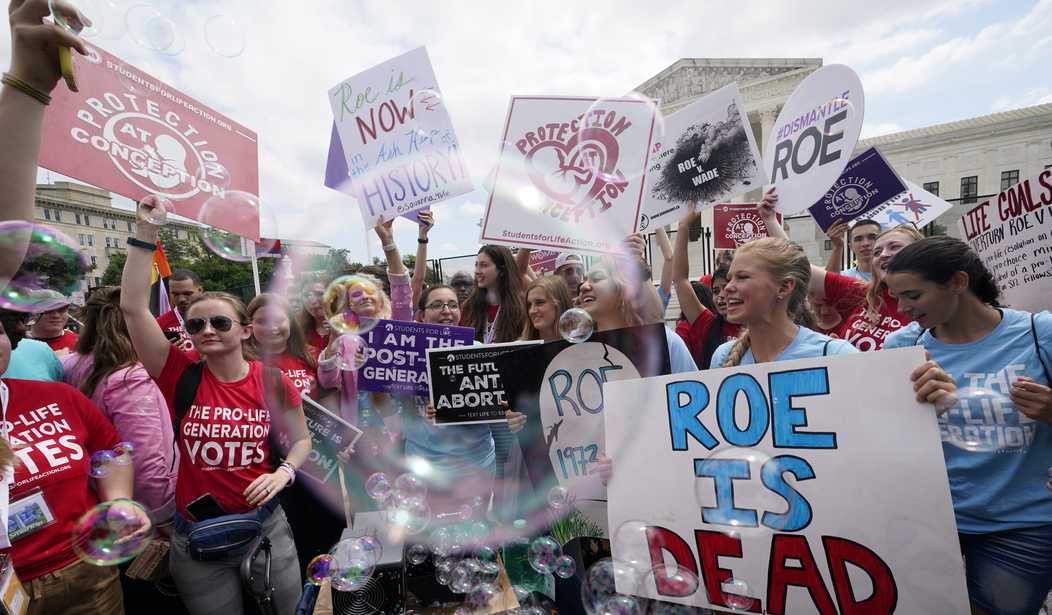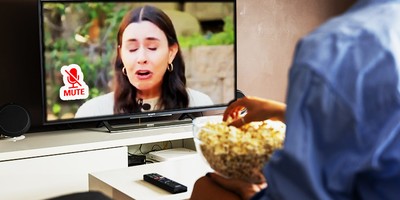"The real question today is not when human life begins, but what is the value of human life?"
President Ronald Reagan asserted this on the 10th anniversary of Roe v. Wade, in his piece "Abortion and the Conscience of America." (It was first an unsolicited submission to The Human Life Review before it became a book with other commentaries.)
Even then it was clear that "we live at a time when some persons do not value all human life," Reagan wrote. "They want to pick and choose which individuals have value." And he wasn't even living at a time when assisted suicide was legal in some states, as it is now. But he already saw the desire to eliminate Down syndrome -- by eliminating babies with Down syndrome.
Reagan also shrewdly compared Roe to the Supreme Court's Dred Scott decision, which denied citizenship rights to African Americans, writing: "This is not the first time our country has been divided by a Supreme Court decision that denied the value of certain lives." He pointed out that Dred Scott "was not overturned in a day, or a year, or even a decade." He recalled that, "At first, only a minority of Americans recognized and deplored the moral crisis brought about by denying the full humanity of our Black brothers and sisters; but that minority persisted in their vision and finally prevailed. They did it by appealing to the hearts and minds of their countrymen, to the truth of human dignity under God."
Reagan wrote: "Every legislator, every doctor and every citizen needs to recognize that the real issue is whether to affirm and protect the sanctity of all human life, or to embrace a social ethic where some human lives are valued and others are not. As a nation, we must choose between the sanctity of life ethic and the 'quality of life' ethic."
Recommended
In some ways, that choice is harder today, after nearly four added decades of legal abortion and a throwaway culture bent on superficial comfort and convenience. It requires a certain denial of reality to insist that an unborn baby is not a developing human life, as 4D sonogram imaging makes clear.
The Supreme Court has liberated us from the lie that was Roe, from the idea that some human lives are disposable. Now, can we declare independence from most abortion in America? There is a lot of talk of rare, horrific cases. Can we also talk about the large number of abortions that are essentially backup birth control? Can we make sure women and girls know about options other than abortion? Can we use private and public resources to help mothers and children? And can we rehabilitate family in America? Families are our most precious natural resource.
"Abraham Lincoln," Reagan wrote, "recognized that we could not survive as a free land when some men could decide that others were not fit to be free and should therefore be slaves. Likewise, we cannot survive as a free nation when some men decide that others are not fit to live and should be abandoned to abortion or infanticide."
He continued: "As a nation today, we have not rejected the sanctity of human life. The American people have not had an opportunity to express their view on the sanctity of human life in the unborn. I am convinced that Americans do not want to play God with the value of human life. It is not for us to decide who is worthy to live and who is not. Even the Supreme Court's opinion in Roe v. Wade did not explicitly reject the traditional American idea of intrinsic worth and value in all human life; it simply dodged this issue."
Well, now that we are free of Roe, we have a choice to make in each of the 50 states. Does life matter? And not only do we need to protect unborn lives, but prioritize motherhood (and fatherhood). Women are amazing. Let's stop lying about what's possible and get them the resources they need to choose life and help others flourish.
(Kathryn Jean Lopez is senior fellow at the National Review Institute, editor-at-large of National Review magazine and author of the new book "A Year With the Mystics: Visionary Wisdom for Daily Living." She is also chair of Cardinal Dolan's pro-life commission in New York. She can be contacted at klopez@nationalreview.com.)
























Join the conversation as a VIP Member